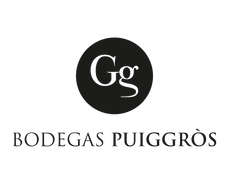10 products


- White Wine
- Furmint
- Organic, Sustainable, Vegan-Friendly, Volcanic
- Medium Bodied
- 750ml
- 12.5% alc./vol
About the Winery
Gilvesy Pincészet

Hungarian expat Róbert Gilvesy moved back to his homeland from Canada, and began building the Gilvesy winemaking empire on the former Esterházy estate on Szent György Hill. Thanks to years of hard work, the Hegymagas-based facility now includes a modern building complex and about 13 hectares of vineyards, in addition to being the home of the family. The area is shaped by 6 million years old volcanoes, where indigenous and international varieties grow organically.
Robert’s absolute admiration for nature and the terroir translates into an immense respect for the environment. By farming using organic practices, the soils and the vines stay healthy. In the winery, by letting nature take its course without controlling the processes, and using local resources, such as Hungarian oak barrels, Gilvesy promotes and protects the Balaton region.
- Red Wine
- Pinot Noir, Trousseau
- Sustainable, Vegan-Friendly
- Dry
- Residual Sugar: 2 g/l
- Medium Bodied
- 750ml
- 13.00% alc./vol
About the Winery
Domaine Baud Père et Fils

The history of Domaine Baud dates back to 1742, and it wasn't until 1950 when René Baud, the 7th generation, rebuilt the vineyard which had suffered from the phylloxera crisis and two World Wars.
Starting with only 4 hectares, the vineyard progressively expanded to 20 hectares with the help of successive generations. Now, managed by siblings Clémentine and Bastien, the 9th generation, the estate continues to flourish and grow, with a strong commitment to sustainable viticulture and preserving the traditions and style that makes the wines of the Jura so unique and incredible.
The estate achieved the Terra Vitis certification in 2014 for its eco-friendly work and environmental preservation.
- Red Wine
- Grenache
- Natural, Sustainable, Vegan-Friendly
- Dry
- Full Bodied
- 750ml
- 13.8% alc./vol
About the Winery
Bodegas Puiggros

Since 1843, the Puiggros family has been producing wines from their own vines in the Odena region of Catalunya for the family and close friends. Over generations they had come to realize that their vineyards and techniques were something worth sharing with the world. A sincere dedication to the terroir in their zone and the indigenous varieties that grow there, allows them to constantly discover ways to unlock all of the magic that lies within their land.
Starting with conscious and clean farming in the vineyard, they hand-harvest only the best fruit for their production, and ferment each vineyard separately in varying vessels to accentuate what the vines have to show; some in stainless steel, and many in clay amphora of differing sizes. All the while seeing very little sulfur use (if any) until bottling. Puiggros is pushing the quality of northeastern Spain's wines forward, and doing so in a clean and unique way.
Bodegas Puiggròs

Since 1843, the Puiggros family has been producing wines from their own vines in the Odena region of Catalunya for the family and close friends. Over generations they had come to realize that their vineyards and techniques were something worth sharing with the world. A sincere dedication to the terroir in their zone and the indigenous varieties that grow there, allows them to constantly discover ways to unlock all of the magic that lies within their land.
Starting with conscious and clean farming in the vineyard, they hand-harvest only the best fruit for their production, and ferment each vineyard separately in varying vessels to accentuate what the vines have to show; some in stainless steel, and many in clay amphora of differing sizes. All the while seeing very little sulfur use (if any) until bottling. Puiggros is pushing the quality of northeastern Spain's wines forward, and doing so in a clean and unique way.
Press Reviews
WineAlign
91 points (2021) - John Szabo, MS
A clay amphora-aged garnacha from Catalunya, high ripeness is evidenced by the sweet, red currant and cherry jam flavours alongside 14.5% alcohol declared. Yet the palate remains firm and fresh, juicy even, thanks to the zesty acids. Tannins are light and fine, and length and depth are good. I'd let this settle for another year or two to further the quest for complexity. Tasted January 2024.
90 points (2021) - Sara d'Amato
A stylish and compelling amphora-matured wine from Catalunya. Lightly reductive, which is a bit unusual for garnacha, with a crunchy texture and flavours of sea salt, raspberry, plum, and candied cherry. Features gently warming alcohol and delicate tannins. Finely crafted with excellent concentration. Best 2024 to 2028. Tasted February 2024.
90 points - John Szabo, MS
A clay amphora-aged garnacha from Catalunya, high ripeness is evidenced by the sweet, red currant and cherry jam flavours alongside 14.5% alcohol declared. Yet the palate remains firm and fresh, juicy even, thanks to the zesty acids. Tannins are light and fine, and length and depth are good. I'd let this settle for another year or two to further the quest for complexity.
Tasted January 2024 - 2021 vintage









